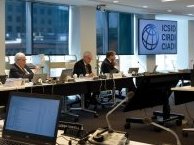
The investor-state dispute settlement (ISDS) mechanism has come under fire in the past few years. As a result of many controversial cases, civil society groups, international organisations, academics, lawyers and state officials have argued that the arbitration process has had a negative impact on public interest and is need of reform or should be scrapped altogether.
Therefore tweaked versions of the system have been proposed to avoid the most undesired “side effects” of standard ISDS rules. At least 45 countries and four regional blocs are revising or have recently revised their investment model agreements.
In 2012, South Africa, the government started to withdraw from its bilateral investment treaties and amended domestic legislation to make it compatible with BIT-like investor protections while incorporating exceptions where warranted by public interest considerations.
In 2014, Indonesia decided to terminate 67 bilateral investment treaties and has also been developing a new model BIT that supposedly reflects a more balanced approach between the country’s right to regulate and foreigner investor protection.
In 2015, the European Commission established a new ’Investment Court System’ to replace the current ISDS mechanism in its trade deals. The ICS has been incorporated in the EU deals with Canada (CETA) and Vietnam. It has also been proposed for the ongoing negotiations with Mexico, the Philippines and the US (TTIP). However many critics claim that this new system is largely window-dressing.
In December 2015, India released a revised model BIT which, for instance, requires investors to exhaust domestic remedies (Indian courts) before turning to international arbitration and leaves out “fair and equitable treatment” provisions.
In 2016, members of the Southern African Development Community (SADC) (Botswana, Lesotho, Mozambique, Namibia, South Africa and Swaziland) amended the SADC Finance and Investment Protocol that included ISDS provisions. The amendments eliminate the ISDS mechanism (only state-to-state arbitration remains) and narrow the scope of investors’ rights, including exclusion of “fair and equitable treatment”, limitations to “national treatment” to allow for local preferences, obligation for investors to follow host state domestic law and exception from investment rules for policies enacted to comply with international treaties.
In South America, experts from the Union of South American Nations (UNASUR) have been developing an investment settlement centre, as an alternative to the World Bank’s ICSID.
In 2017 states from around the world began to debate at UNCITRAL (United Nations Commission on International Trade Law) about the possible reform of the ISDS system in a way that would address legitimacy concerns and rebalance the system. As part of these discussions, the EU proposed the creation of a Multilateral Investment Court (MIC), which was slammed by civil society groups, as the MIC would “enshrine, expand, and entrench the current system of corporate privilege in future trade deals.”
Photo: Attac / CC BY-SA 2.0
March 2021












 :
:
